Putin in the Near and Middle East: assessments, outcomes and consequences
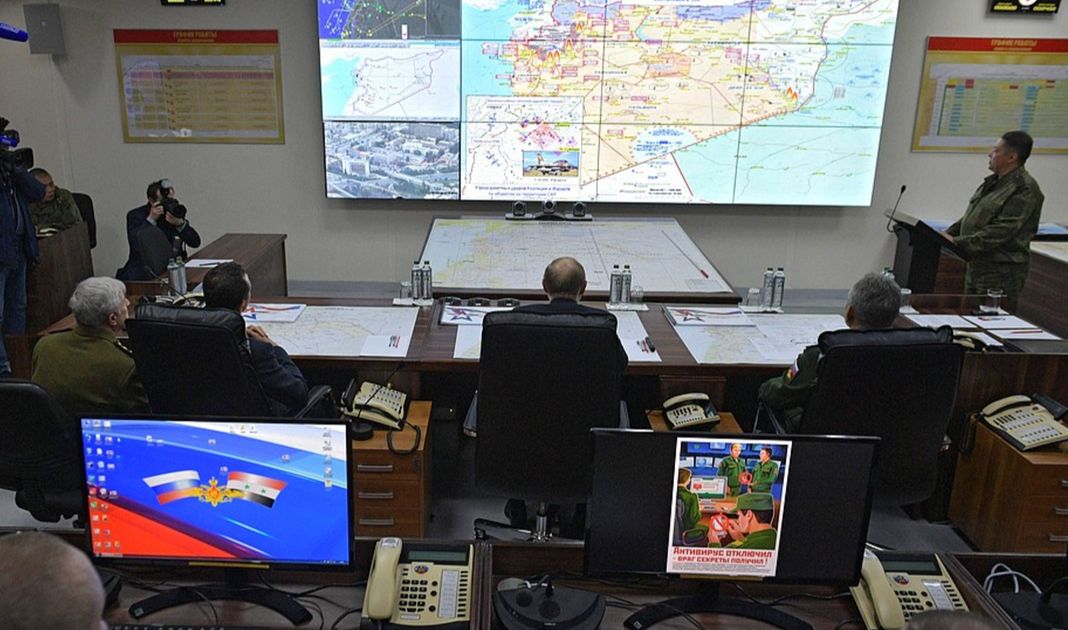
(photo: kremlin.ru)
Last time Putin visited Syria was in December 2017. Since then, many things have changed. The most interesting and intriguing movement was when the Iranian ‘retaliation’ rockets were landing in Iraq near American military bases, when the President of Russia in the daylight of 7th January secretly and without much ado arrived to Damascus. In the evening, Putin arrived in Turkey where he opened the “Turkish Stream” together with his counterpart Recep Tayyip Erdogan. Eventually he arrived to Crimea and held a meeting with local occupational authorities and examined the situation in the Black Sea Fleet. It is important to analyze in detail Putin’s trip to the Middle East, in order to highlight some very important pieces of the Middle Eastern conundrum that we all have been witnessing recently. It’s worth emphasising that the situation is far from its end.
CHINA AND RUSSIA IN THE SECURITY COUNCIL
The major Russian move regarding the current situation in the Middle East traditionally was made in the UN Security Council. On January 6, both China and Russia blocked the UNSC statement underscoring the inviolability of diplomatic and consular premises after the December 31 attack on the U.S. Embassy in Baghdad. This, according to one U.S. official calls, put the Council’s credibility into question. Chinese and Russian representatives replied that they were condemning any attack on diplomatic premises around the world, but they let it be known that without adding to the statement condemning the killing of prominent Iranian general Qassem Soleimani, they were not ready to vote for the statement. The following day after Iranian ‘retaliation’ on January 9, Vasily Nebenzya (Russia’s Permanent Representative to the United Nations in the Security Council) took a bold posture and pressed forward the Russian international agenda and as a stern critic lectured the U.S. and its allies for their policy in the Middle East. This day, the Security Council held an open debate on upholding the UN Charter (it was the Seventy-Fifth Anniversary of the United Nations Charter). In some terms, it was a continuation of Putin’s speech in the General Assembly, when the Russian leader said “Do you realize what you’ve done?”. Nebenzya stressed that the UN Charter contains all the principles of multilateralism; the system of collective security and principle of sovereign equality of all states. According to the Russian diplomat, the U.S. violated all these principles. Moreover, he came to an interesting conclusion that “The process of forming a polycentric, multipolar world has become irreversible. Not everyone is happy with this.” Nebenzya sees that the correlation of forces in the world and in the Middle East especially, is altering and it is irreversible. Simultaneously, he concludes that the U.S. were acting as a power willing to preserve its hegemonic status. Interestingly, the Chinese Ambassador Zhang Jun emphasized that the US unilateral adventurist act has led to a high degree of tensions in the Middle East and the Gulf, but neither Russia nor China have brought the issue to the Security Council. It should be noted that Russia’s position was more moderate than the Chinese reaction to the American actions in Iraq. Partially it is possible to assume that Russia accumulated from the current Iran-American confrontation a strategic momentum in Syria to gain an absolute monopoly in the country. Plus, Soleimani was precisely the person who was responsible for Iranian expansion in the region.
Putin arrived to Syria on 7th January and had a meeting with Bashar Assad and Russian generals fighting in Syria. He had the opportunity to see Damascus more or less ad hoc, because of the level of secrecy the security arrangements were in the low level in order not to be disguised. He visited a newly built Syrian affiliation of the National Defense Control Center (NDCC) of the Ministry of Defense of Russia – Command Post of the Russian Group of Forces in Syria, where Russian and Syrian militaries reported on the situation on the fronts and, apparently, on operational plans for the future. The Head of the NDCC Mikhail Mizintsev stated that the Ministry of Defense wanted to concentrate in one place all fast-changing information in the difficult military and political environment. Official tasks are the following:
– maintaining a centralized combat command and control system of the Armed Forces in readiness for combat use and monitoring the state of the Armed Forces, groupings of troops (forces) in strategic directions;
– providing the leadership of the Ministry of Defense with information on the military-political situation in the world, the socio-political situation in the Russian Federation and the state of the Armed Forces,
– management, coordination and control of Air and Naval Forces of Russia;
(photo: kremlin.ru)
In the evening, Putin visited the Umayyad Mosque (which contains the tomb of Saladin) and the Mariamite Cathedral of Damascus, where he paid a visit to the Greek Orthodox Patriarchate of Antioch and all the East in Damascus – Patriarch John X. The Antioch Patriarchy is one of Moscow’s staunchest allies in the Middle East. Even during the times of Communism in Russia, the two Orthodox religious centers maintained close relations despite the atheistic nature of the Soviet Union. During the meeting of the two presidents with the Patriarch, Assad said to Putin that if Russia does not help Syria, in the place of the Patriarch would be seated Al-Baghdadi. Putin agreed with such an assessment. Finally, after historical sightseeing Putin together with Assad traveled to the airport of Damascus.
In the new Command Post of the Russian Group of Forces in Syria, Putin – together with the Minister of Defense of Russia Shoygu – had an online meeting with Russian soldiers that are located in different parts of Syria. It is quite interesting that Russia built such a center after only five years of active presence in Syria. Actually, the military operation in Syria was the main playground for the NDCC (opened in December 2014). During the years of the Syrian campaign, the NDCC was the main center responsible for operational decisions regarding Syria.
Nevertheless, it has a crucial meaning for Russia and it is going to be the first such center beyond Russian borders. Sergey Shoygu, Minister of Defense of Russia, explained that the main idea behind it was an efficiency of providing information to the Russian leadership, which enables instant decision making. He envisions the NDCC as a “system with the open architecture, the system of bookcase that has unlimited space for as many books as will be needed.” Moreover, Moscow will be able to monitor much more effectively, analyzing and examining the situation in the region in the regime of real-time control. The U.S.-Iranian crisis was exactly the ad hoc situation, perfectly fitting to the main purposes of such a center. Shoygu explained that if Russia had had such a center with “supercomputer” before, they would have been able to predict the war in Yugoslavia in 1999 and would have had a chance to prevent the war. According to him, a special matrix with an algorithm that allows understanding whether or not there is war in any region of the world was elaborated. The national center has five regional centers (mostly in the European part of Russia) and covering the entire network of command centers in Russia. The first regional center was built in the Southern Federal Region and is responsible for the entire Russian south (Black Sea, Caucasus and Caspian region). Plus, it is responsible for foreign military bases of Russia in Abkhazia, South Ossetia and Armenia (with the headquarters in Rostov-on-Don). Possibly, this center covered the Middle East during the recent years, but since Russia managed to build a new Command Post in Syria, all responsibility for the Middle East will be on a newly established post. The Command Post allows the conducting of systematical control of the Russiaan Army in Syria and further afield to conduct military compatibility planning of all Russian forces. The only issue remaining is the future of communication with the all-Russia secret military network of Command Posts. However, according to recent announcements, Russia is ready to finish the first stage of construction of secret military internet at the end of the year that will be able to transmit information approximately up to 2,000 km. For example, from Sevastopol to Damascus there is 1,200 km, and from Rostov-on-Don – 1,500 km. In its full capacity, this internet is to start to work only in 2021.
(photo: kremlin.ru)
In the Command Post, the Russian President delivered a speech in which he once more emphasized that the Russian Army in Syria was fighting not only against the terrorists, but they were defending Russia. The two presidents pledged that the Syrian conflict must be finished at the end of this year. Generally speaking, the recent negotiations on Libya in Berlin took some form of repetition for Syrian international conference. If Turkey and Russia manage to reconcile and stabilize the situation in Libya, it should be Syria’s turn next.
From the inception of 2019 till 19 January of this year, Putin and Recep Erdogan had at least 10 official meetings and fourteen phone calls. These are definitely unprecedented developments in Russian-Turkish relations. This year, the two countries are planning to celebrate their 100 years anniversary of official diplomatic relations. Erdogan organized a pompous show during the launching of the project.
On January 7, after Syria, Putin arrived to Istanbul, the next day he opened the first line of the Turkish Stream together with Turkish, Bulgarian and Serbian counterparts. Bereft of a full success when the U.S. sanctioned the Northern Stream, Russia at least had a partial success. It is clear now that Russia had a well-calibrated plan for the beginning of 2020. They hoped to open two pipelines almost at the same time, but this plan was abruptly halted by the drastic American intervention into Russian-German relations. I would presume that if the project is completed within 2020, Russia has a chance for bigger strategic benefits – if she is able to finish the pipeline without American sanctions. Such scenarios are very risky for Moscow, yet now Berlin and Washington have their first serious diplomatic rift for a decade.
(photo: kremlin.ru)
In his speech, Putin outlined that “interaction between Turkey and Russia is gradually developing in all spheres, despite the difficult international situation and the attempts of other international actors to interfere in the process of the improvement of Russian-Turkish relations.” He also added that there is a very difficult situation in the Middle East and it is only deteriorating: “But Turkey and Russia show completely different examples – an example of interaction and cooperation for the benefit of our peoples and the peoples of all of Europe, the whole world.” Erdogan throughout his speech called Putin a “friend” four times. According to the Muslim tradition, it is the highest level of recognition, as Erdogan calls only the President of Azerbaijan “brother”. Erdogan touched a geopolitical aspect – he said that the cooperation between Russia and Turkey has a serious impact on the entire Eurasian continent. Additionally, “Turkish Stream” immediately makes Russia a serious geopolitical factor. In fact, without Russia neither Bulgaria nor Serbia would join such a project, because it creates a regional hegemon from Turkey. Greece feels this, nervously reacting to Ankara’s ambitions.
The first thing done by Erdogan and Putin in Istanbul, was a discussion of the events that occurred during the night in Iraq and in Idlib, Syria and Libya. For Libya, the two sides presented an initiative to end hostilities. In the official document, it was stressed that “We decided to take the initiative and, as mediators, to call on all parties in Libya to cease hostilities from 00:00 on January 12, 2020.” It is remarkably reminiscent of the “Syrian scenario”, namely the Russo-Turkish peace initiatives for Northern Syria in October 2019. Ankara and Moscow pretend to be ‘the regional ‘fireman.’ Two sides exactly during these negotiations agreed to support the “Berlin process of settlement of the Libyan crisis.” On January 13, intermediary meetings under auspice of Turkey and Russia were held in Moscow for the settlement of the civil war in Libya. Even though the ceasefire has not been achieved and Haftar left Moscow, the process of international settlement of the Libya crisis has started and Erdogan and Putin paved a way to it, no matter how strange it would sound. Moscow exchanged opinions with China, regarding Libya and the Berlin Conference. Interestingly, Putin had an official meeting with Fayez Sarraj in October 2019, but none with Halifa Haftar. In Libya, Russia pretends to play an equidistance game. It should be noted that it is more likely that Russia will achieve good relations with Libya after the war – either with Haftar or Saraj.
Indirectly during Putin’s visit to Damascus and then during Putin’s visit to Turkey, Russia straightforwardly expressed that its strategic goal is the elimination of jihadists in Idlib. It is clear for everyone that without this problem, Russia and Turkey cannot establish peace in the region and cannot sail a new global ‘brand’ – peace-builders. They even promisingly introduced the regime ceasefire in the Idlib de-escalation zone, in accordance with the agreements reached with the Turkish side, which was introduced from 14:00 on January 9, 2020.
For Putin and Erdogan, such a scenario is more than ever what they can achieve because for more than a century, none of non-Europeans had established rules without Western interference or only the West was establishing international rules. Thus, the primary issue is how to tackle the problem and save face for Erdogan. One option is to send them all to Libya. According to Russia, approximately 4,000 jihadists are now present in Idlib zone (of Eurasian origin). For Putin it is clear, as he put a task to Russian soldiers that “these terrorists should not return to their homelands.”
On Turkish TV, there was a discussion recently and there was voiced a position that Ankara can give concessions to Moscow in return for Putin concessions on Libya to Turkey. However, compared with Turkey, Russia maintains relations with almost every regional center of power and she has certain limits in these circumstances. But what Russia wants is peace in Syria, in order to commence the full-fledged process of reconstruction of the country, perhaps even with Chinese help. For Turkey, the Libyan regime in Tripoli is more than saving Muslim “brothers” it is pressure on Israel, Cyprus, and Greece in Ankara’s strive to join to the future system of pipelines in the Mediterraniean. If she loses in Tripoli, she will be deprived of serious leverage on the EastMed project. At the same time, Libya put constraints to relations between the NATO members, not only between Greece and Turkey, but also between France and Italy. Despite all attempts to find a peaceful solution for Idlib, the confrontation has not stopped there. Russia and Syria are still clashing with the jihadists from the Hayat Tahrir al-Sham. On January 11, several hundred jihadists attacked positions of the Syrian army. The next attack took place on January 16-18, when jihadists attacked the Syrian Army by use of drones. According to the Russian position, jihadists are making attempts to escalate the situation and terminate the process of evacuation of civilians from the zone, using them as a “shield.”
In Berlin, Erdogan and Putin discussed the situation in Idlib. The Turkish leader pointed out that with Russia they had strategic relations and directly stressed that “I don’t even consider the situation that there may be problems.” Erdogan recognizes that the main problem is that Russia considers jihadists as terrorists, whereas Turkey instead sees them as “moderate opposition.” Amid all this geopolitical turmoil, Iraq added fuel to the fire, when Baghdad reportedly resumed negotiations with Moscow over reinforcing its S-400 air defences.
The framework of Turkish-Russian “friendship” consists of several elements. First, permanent contacts between the two leaders. Second, permanent and friendly contacts between the heads of Defense Ministries – Sergey Shoygu and Hulusi Akar. For Turkic culture, the ethnic factor plays an important role, as Shojgu belongs to the Turkic ethnicity – the Tuvan people (from the Altay region). The Altay Turkic community has a legendary narrative in Turkey linking two ideologies – Eurasianism and Turanism. Third, friendly relations between Foreign Ministers Mevlüt Çavuşoğlu and Sergey Lavrov. Çavuşoğlu for example, speaks Russian. Putin’s press secretary Dmitry Peskov speaks Turkish, worked previously in the Russian Embassy in Turkey and translated for Boris Yeltsin.
FROM NEW TO TRADITIONAL RUSSIAN SOUTHERN FRONTIER CRIMEA: NAVAL POWER
(photo: kremlin.ru)
On his way home, on January 9, Putin had one stop in Sevastopol, Crimea (occupied by Russia since 2014). There and in the Black Sea were held joint exercises of the Northern and Black Sea Fleets. Putin from the missile cruiser “Marshal Ustinov” observed the maneuvers; the warships fired missiles “Caliber” and “Kindzal.” The aviation part of the exercises was presented, in particular, by a pair of MiG-31K fighters who fired live with a “Dagger” rocket at a target at one of the firing ranges. The crews of “Admiral Grigorovich,” “Orekhovo-Zuevo” and “Kolpino” carried out launches from the surface and underwater positions with “Caliber” missiles. Russian drones were monitoring the military drills. After the drills Putin had a meeting in the Black Sea Higher Naval School where he held a meeting with the leadership of the Ministry of Defense and the command staff of the Navy. The meeting was devoted to the main directions of development of the Russian Navy in the nearest and longer term. Putin stated that “The Navy has always been and remains the most important, if not a key component ofensuring national defense and security. And in the XXI century, we must maintain and strengthen the status of our country as one of the leading maritime powers.” In Sevastopol, Putin was presented projects of new weapons and moreover, he examined a project of the biggest in the world aircraft carrier. As a prototype, there will be used the technical documentation of the unfinished during the Soviet period nuclear-powered TAVKR (heavy aircraft-carrying cruiser) project 1143 “Ulyanovsk.” It is a very ambitious project, planned to be completed in 2030 and they will certainly try to create an equal (or even better) to the American Gerald R. Ford aircraft carrier. Actually, this does not contradict to the Russian Naval Strategy for 2030 which straightforwardly stated that “The Russian Federation will not allow any significant superiority of naval forces of other states over the Russian Navy and will strive to secure its status in the second place in the world in terms of combat capabilities.” The same day, Shoygu headed a conference in Sevastopol “Navy in the XXI century.” At the conference, Shoygu stressed that “Today, the growing Russian presence in the oceans causes irritation in certain major powers, which have stepped up the fight for access to raw materials. In order to respond to any provocative actions of our opponents, we are building a modern high-tech Navy. To do this, we have powerful scientific potential, experienced engineers and workers who are well-trained personnel”.
Putin concluded his trip to Crimea, ‘sacral’ to him, and outlined his general strategic vision of Russia in its southern frontiers for the next decade.
CONCLUSION
It is obvious now that the Russian Federation is gradually monopolizing the Middle Eastern diplomatic and military agenda. This is the result of different factors, however the most important is that Moscow in comparison with previous principal stakeholders is sharing responsibility or even a burden with the regional ‘center of power.’ If we are going to examine the Cold War times and even the last 30 years, almost no regional power (Turkey or Iran) received such a share of independent action, as is happening in the Middle East during the last several years. This is possibly because Russia is relatively weak; hence the regional powers are not afraid of her, as they were during the Cold War. They are ready to accept her presence and because of the same weakness, Russia is not able to act alone as a hegemon and contain the West in the region on her own. Russia needs allies – without them she is not able to maintain her geopolitical presence, even for a short time period. Nevertheless, it should be noted that the Middle Eastern environment requires the power that would guide the regional order or at least temporarily fill the vacuum of power. The U.S. and China are too powerful for this function.
Russia is now an indispensable geopolitical player in the Near and Middle East, at least as long as Putin is in power. Hence, Putin initiated the process of overwhelming and comprehensive Constitutional and social reforms in Russia that have been presented during his speech in front of the political elite of Russia. He wants to prepare the country to the ‘After-Putin-Times’, both in terms of domestic resilience and a strong international position of Russia. The American response to this new geopolitical reality is unclear. On the one hand, we see an escalation of the situation in Northern Syria between the Americans and the Russians. On the other hand, a senior fellow at the Atlantic Council Matthew Bryza is voicing an interesting position. He stressed that Americans were ready to recognize Turkey as a regional power, “that is pursuing an independent policy” regarding Turkish ambitions in Northern Syria, Iraq, Libya, a position of Turkey on EastMed pipeline and drilling activities.
The geopolitical year started from the Middle East and it is highly likely that it is going to end in the Middle East. On November 21-22, 2020 in Riyadh there will be a summit of the world leaders G20 and there are serious possibilities that the current geopolitical balance of power will have shifted further by then.
Autor
Ridvan Bari Urcosta
Senior Analyst at Strategy&Future


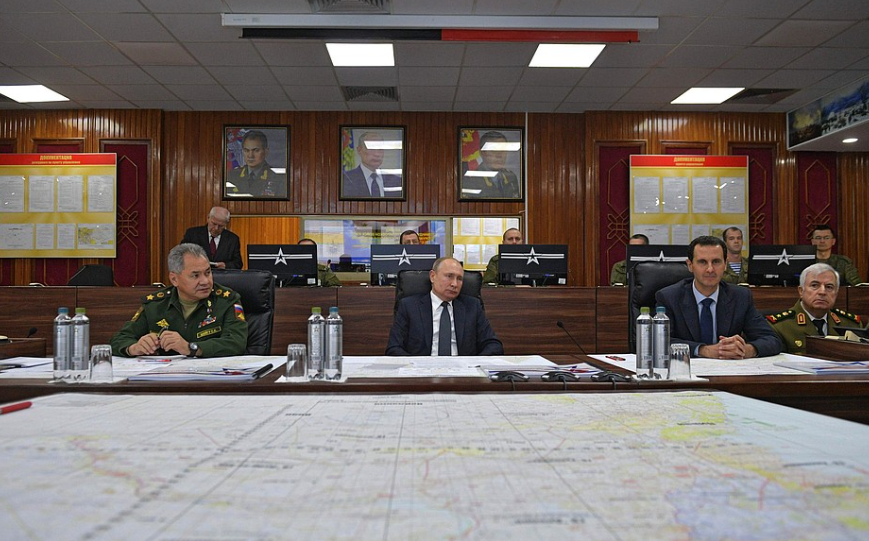
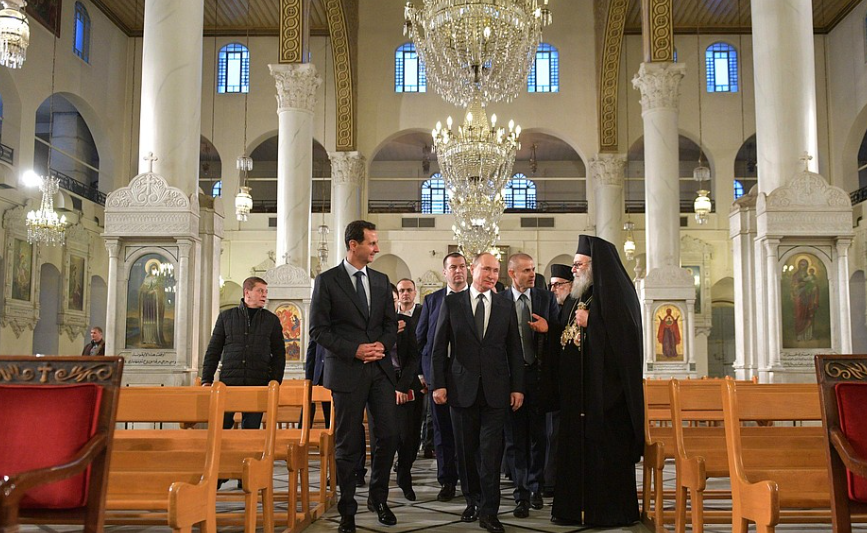
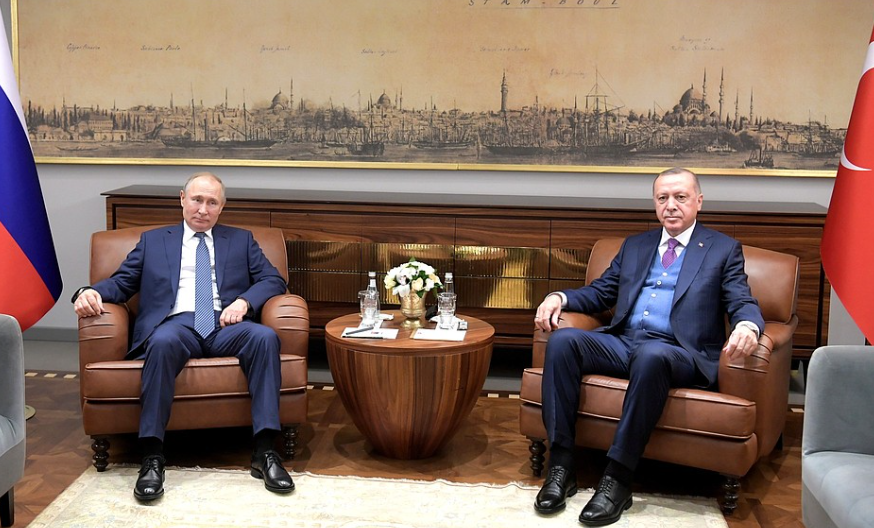
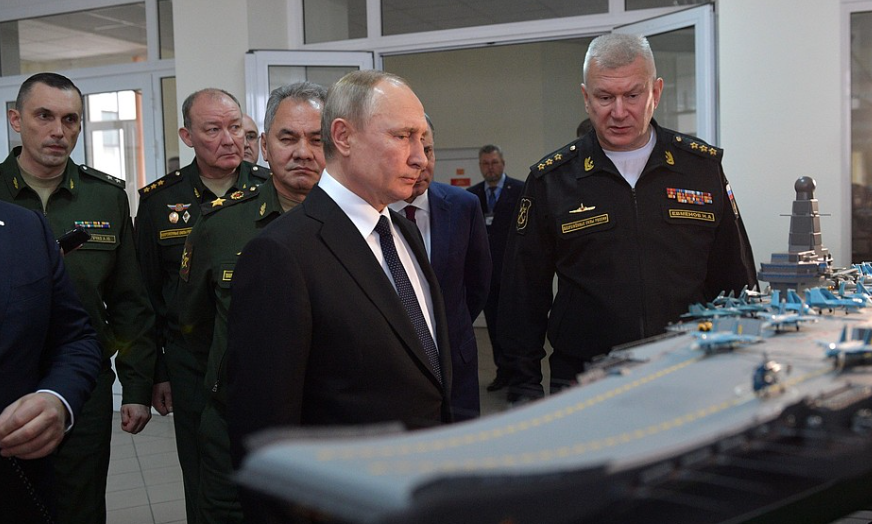

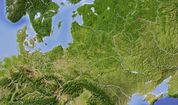

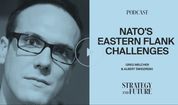
Trwa ładowanie...